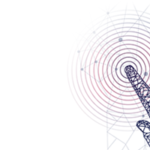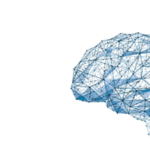Season 1 – Episode 22 – Responsible Implementation of Smart City Technologies
Discusses smart city technologies, including some ethical and regulatory considerations.
Podcast Chapters
To easily navigate through our podcast, simply click on the ☰ icon on the player. This will take you straight to the chapter timestamps, allowing you to jump to specific segments and enjoy the parts you’re most interested in.
- Smart Cities Definition (00:01:54) Junfeng Jiao defines smart cities and explains the three major technologies associated with them.
- Benefits of Smart City Technologies (00:03:48) Junfeng Jiao provides examples of how smart city technologies can benefit urban environments, including smart transportation and smart metering.
- Stakeholders in Smart City Implementation (00:05:47) Discussion of the key stakeholders involved in implementing smart city technologies, including citizens, government, and industry.
- Ethical Considerations in Smart Cities (00:06:47) Exploration of ethical issues, with a focus on transparency and inclusiveness in the implementation of smart city technologies.
- Regulatory and Legal Challenges (00:09:32) Junfeng Jiao discusses the regulatory and legal challenges associated with the implementation of smart city technologies, including trust and lack of resources.
- Building Trust for Smart Cities (00:11:48) Guidance on building trust for the implementation of smart city technologies, emphasizing the need for collaboration and transparency among stakeholders.
- Resources for Smart City Projects (00:13:05) Junfeng Jiao shares resources for learning more about smart city projects, including the Texas Smart City Institute and the Urban Information Lab.
Episode Transcript
Click to expand/collapse
Daniel Smith: Welcome to On Tech Ethics with CITI Program. Our guest today is Junfeng Jiao, who is an associate professor in the Community and Regional Planning Program at the University of Texas at Austin. He’s the founding director of the Urban Information Lab, director of Texas Smart Cities, director of the UT Ethical AI Program, and a founding member of UT Austin’s Good Systems Grand Challenge. His research focuses on smart cities, urban informatics, and ethical AI. Today, we are going to discuss smart cities, including some ethical and regulatory considerations.
Before we get started, I want to quickly note that this podcast is for educational purposes only. It is not designed to provide legal advice or legal guidance. You should consult with your organization’s attorneys if you have questions or concerns about the relevant laws and regulations that may be discussed in this podcast. In addition, the views expressed in this podcast are solely those of our guest. On that note, welcome to the podcast, Junfeng.
Junfeng Jiao: Thank you so much, Daniel. Glad to be here.
Daniel Smith: It’s great to have you, and I look forward to learning more about smart cities, but first, can you tell us more about yourself and your work at UT Austin?
Junfeng Jiao: Sure. My name is Junfeng Jiao. I’m an associate professor at UT Austin. My research focuses on urban informatics, smart cities, and ethical AI. I’m a founding member of the UT Good Systems Grand Challenge, also the director of Urban Information Lab, and the Texas Smart Cities and Ethical AI Program at UT. My research really focuses on using emerging technology, trying to better design, develop and deploy technology within cities, trying to make cities greener, sustainable, safer and run better.
Daniel Smith: Wonderful. I think you just touched on this a bit, but we’ve mentioned the term a few times, smart cities. Can you briefly define smart cities?
Junfeng Jiao: Yes, happy to. There are many definitions about smart cities. My own definition about smart cities is how you can use technology to design, operate and develop cities better. There are three major technologies within the smart city domain. The first technology is IoT devices, internet of things devices. That’s basically a camera sensor and so on. Basically, you can think about it as a group of sensors used to collect the data within cities.
The second part of smart city technology is ICT devices. That basically includes all the communication tools, WiFi, 5G cell phone tower. That’s basically transmitted data from the sensors to the central location and vice versa. The third part of the smart city technology, the major part, is called big data and decision support system, which include AI and machine learning. This third part will use the supercomputer and the computer to analyze the data we collected from IoT devices, transmitted by ICT technology, and they try and use simulations to guide the actual decision-making process within cities.
That’s the three major parts of a smart city. Of course, there are many other sub-fields, or sub-domains within smart cities, and I’m happy to talk about these sub-fields later.
Daniel Smith: Certainly, I think that’s a really helpful overview, and gives our listeners a grounding in what a smart city is. Can you share an example of how leveraging these technologies could benefit people in an urban environment?
Junfeng Jiao: As I mentioned earlier, there are many sub-fields within the smart city domain. I’ll give you some examples. Smart transportation, smart water management, smart grid system, smart camera, smart delivery, smart governance.
I’ll give you a very quick example of a technology application. Say in smart transportation domain we have smart cameras and can automatically do the tolling and on tolling, charging the fees, also can be used to make the intersection safer to reduce the collisions and also can collect the data from the arterials trying to inform the transportation control and reduce the traffic within cities.
I’ll give you another example: smart meter. Smart meter include both water meter and electricity meters. If you install smart meter within your home, you can better monitor your energy and the water consumptions within your home and they use that to better use the resources. Also, at the community or city level, if we install smart meter within all the residential halls within community, within cities, we can get a better picture of the energy and water consumption within the community and within cities. So that way we can better locate resources within cities.
Daniel Smith: That’s really interesting and I think that gives us a good idea of what a smart city is, the core technologies associated with them and really how they can be used within urban environments. So then kind of shifting to the implementation of these technologies or these projects, who are the key stakeholders involved in implementing smart city technologies?
Junfeng Jiao: Wonderful question. There are three major stakeholders in smart city design, develop and deploy. Number one, the citizens, resident within the cities. They’re super important because we design and develop and deploy this technology for the resident within cities. Number two, I would say, is the government, the governing bodies. It can be city council, IGOA and community organizations. Number three, of course, is the industry. Industry provide technology to be deployed within community and within cities. If you want to achieve safer, sustainable, resilient and smart cities, these three groups should work together seamlessly to achieve these goals.
Daniel Smith: Certainly, and I think that’s helpful framing for my next question, which is with those different roles in mind, and it may vary depending on the stakeholder group, what are some of the ethical issues that must be considered when it comes to smart cities and the implementation of these technologies?
Junfeng Jiao: Wonderful question. I’ll give you example. Right now, generative AI and AI are super popular and we see a lot of applications of AI and the generative AI application within cities. So one ethical concern using AI or any smart city technologies are transparency. We want these three stakeholder group to work together to discuss and design the implementation of a technology, keep the whole process transparent, 100% clear to everybody. We don’t want to parachute a technology to a community, say, “Hey, go ahead and use it. It’s good for you. Don’t ask any questions.”
That’s not the way we do it. We want these three groups to work together to understand what inside the technology, at at least at a higher level, and what does technology enable different party to do. And what the data will be collected through the process, how the data will be stored, and how the data will be used. I would just say transparency, safer, fair, inclusiveness are the major considerations when we deploy any smart city technology within cities.
Daniel Smith: So in terms of transparency, what does that ideally look like?
Junfeng Jiao: I would say at a high level, transparency means everybody clear what data will be collected for what purpose, and how the data will be stored, how the data will be analyzed, how the data will be used. This include many data collection process like the water meter or smart electricity meter, and also many other IoT devices. We want everybody on the same page how the data being collected at the very beginning. We don’t want to say, “Oh, we get this data from a certain group and we’re going to use it and we’re going to make the decision best the data we collected.” We want everybody on the same page in the very, very early beginning.
Daniel Smith: So aside from the transparency considerations and the other ethical considerations you just mentioned, what are some of the common regulatory or legal challenges associated with the implementation of these technologies?
Junfeng Jiao: We, as a country, are lagging behind in the smart city development and the smart city technology implementations. If you compare our country with Korea, Seoul, Singapore, Hong Kong, Tokyo, many or even Dubai, we are lagging behind in term of technology implementation within cities. I think a major barrier is the trust. I would say the three party has to trust each other to promote and develop this smart city within our country.
The second part is lack of resources. Ironically, we have the technology, we have the resources to implement different technology within cities, but we don’t see too much yet. I think many smart city technology involve infrastructure upgrades. That will cost a lot of money, so if we don’t have resources allocated to this kind of operation, we’ll never see major breakthroughs in smart city movement.
Of course, we are having wonderful technologies, we have wonderful cities, and we have a wonderful citizen and resident within cities. There’s no reason we cannot be the leader of smart city technology in the world. I think this is a untapped opportunity for the market and also for the everyday citizen and for the government. I really thinking all three parties should work together, build a trust, find the resources, locate the resources, and test and pilot technology within our wonderful cities. This is going to spring off a lot of job opportunities, business opportunities for the cities in the US and for the cities in the world.
Daniel Smith: In terms of building that trust. Do you have any kind of guidance or thoughts on what needs to be done in order to establish that trust so that smart cities can move forward in the United States?
Junfeng Jiao: Yes, I do. I’ll give you some good examples. In city of Austin, the transportation department did a wonderful job trying to implement and test the different smart city technology. In the very beginning, there were organized community meetings and listen, introduce the technology, want to test, and we’ll also work with technology providers to pilot a technology in certain regions, very small regions, and also keep a very transparent and smooth communication between government, citizens and technology providers.
And they were basically co-design, co-develop and co-implement the technology within community, within cities. To answer your question, in order to build the trust, I think we have to change our mindset. These three parties should work together, co-design, co-develop and co-implement technology within cities.
Daniel Smith: Absolutely. So do you have any additional resources where people can learn more about the issues that we discussed and these types of projects?
Junfeng Jiao: Yes. Happy to share. We have worked with the city of Austin Transportation Department and we won the NSF Civic Challenge Grant three years ago. Using that grant, we have co-designed and co-developed a community transportation hub in city of Austin in the Georgian Acres neighborhood. Of course, during this process we work very closely with community partner. The community partner’s name is Jail to Jobs.
So all three party work together very diligently to co-design and co-develop these community hubs. Of course, I’m sure there’s many similar examples and I will encourage people to search co-design, co-development and smart cities.
Also within UT Austin, we have a Texas Smart City Institute. We have a bi-weekly speaker series, and we also have a lot of resources posted on the website, Texas Smart Cities. We welcome people to download, to review, and to check out. It’s all free.
Urban Information Lab also has a lot of hand-on, smart city projects and they’re free and to the public people are welcome to check them out as well.
Daniel Smith: Wonderful. And I’ll certainly be sure to include links to Texas Smart Cities and some of those other resources that you mentioned in our show notes. So on that note, do you have any final thoughts you would like to share that we have not already touched on?
Junfeng Jiao: Yes, I do believe are in a unique position. We are wonderful country with a wonderful city, and we have a number one technology in cities, AI, in computer robotics. There’s no reason we shouldn’t be the leader of smart cities in the world. This is untapped area for us to work on and this is great opportunity for all of us. So I strongly, strongly encourage everybody to work together and develop this market and build a smart city for all human beings.
Daniel Smith: And I think that’s a great place to leave our conversation for today. So thank you again, Junfeng.
Junfeng Jiao: My pleasure. Thank you, Daniel.
Daniel Smith: I also invite everyone to visit citaprogram.org to learn more about our courses and webinars on research ethics and compliance. You may be interested in our Big Data and Data Science Research Ethics course, which covers the unique issues associated with big data and data science research ethics. And with that, I look forward to bringing you all more conversations on all things tech ethics.
How to Listen and Subscribe to the Podcast
You can find On Tech Ethics with CITI Program available from several of the most popular podcast services. Subscribe on your favorite platform to receive updates when episodes are newly released. You can also subscribe to this podcast, by pasting “https://feeds.buzzsprout.com/2120643.rss” into your your podcast apps.
Recent Episodes
- Season 1 – Episode 21: Advancing Your Skills and Career in Biotech
- Season 1 – Episode 20: Understanding the Research Security Training Requirements
- Season 1 – Episode 19: Accelerating Antibiotic Discovery Using AI
- Season 1 – Episode 18: Use of RealResponse in Fostering Safe and Inclusive Work Environments
Meet the Guest

Junfeng Jiao, PhD – The University of Texas at Austin
Junfeng Jiao is an Associate Professor at the University of Texas at Austin. His research focuses on Ethical AI, Smart City, and Urban Informatics. He is also the director of Urban Information Lab, Texas Smart City, and NSF NRT UT Ethical AI Program.
Meet the Host

Daniel Smith, Associate Director of Content and Education and Host of On Tech Ethics Podcast – CITI Program
As Associate Director of Content and Education at CITI Program, Daniel focuses on developing educational content in areas such as the responsible use of technologies, humane care and use of animals, and environmental health and safety. He received a BA in journalism and technical communication from Colorado State University.












